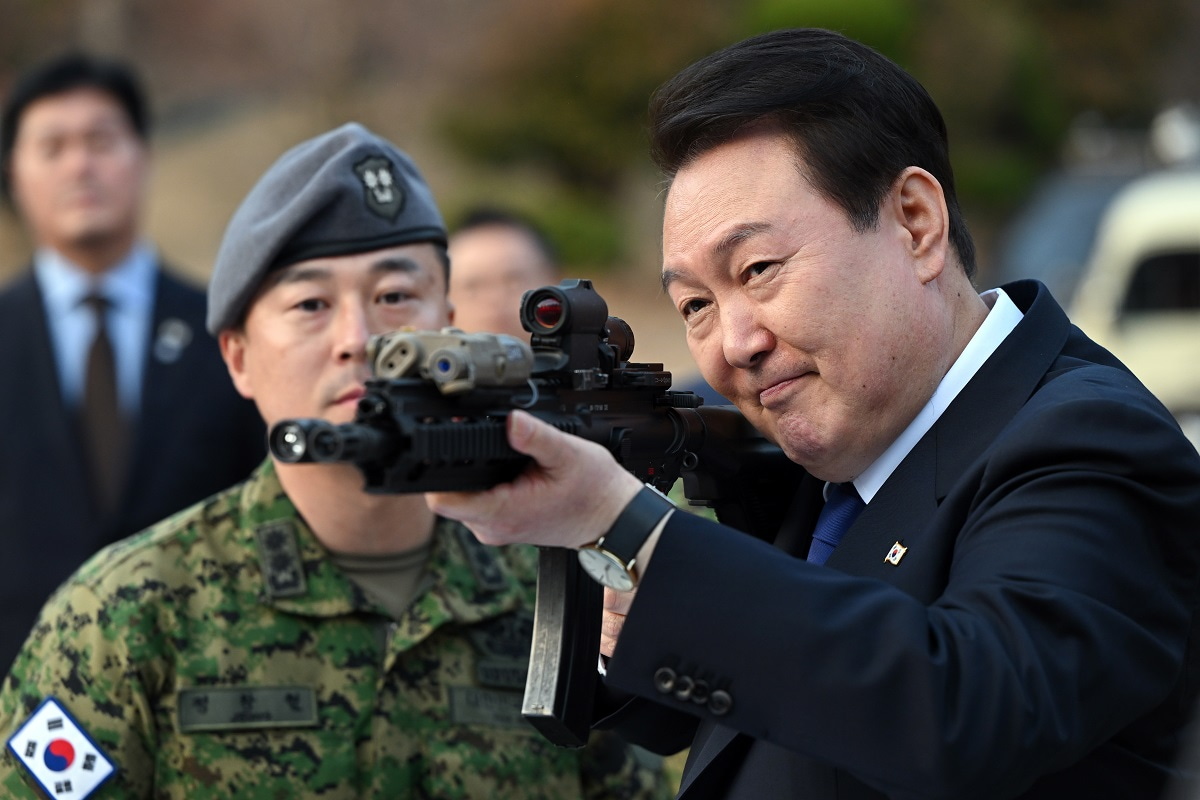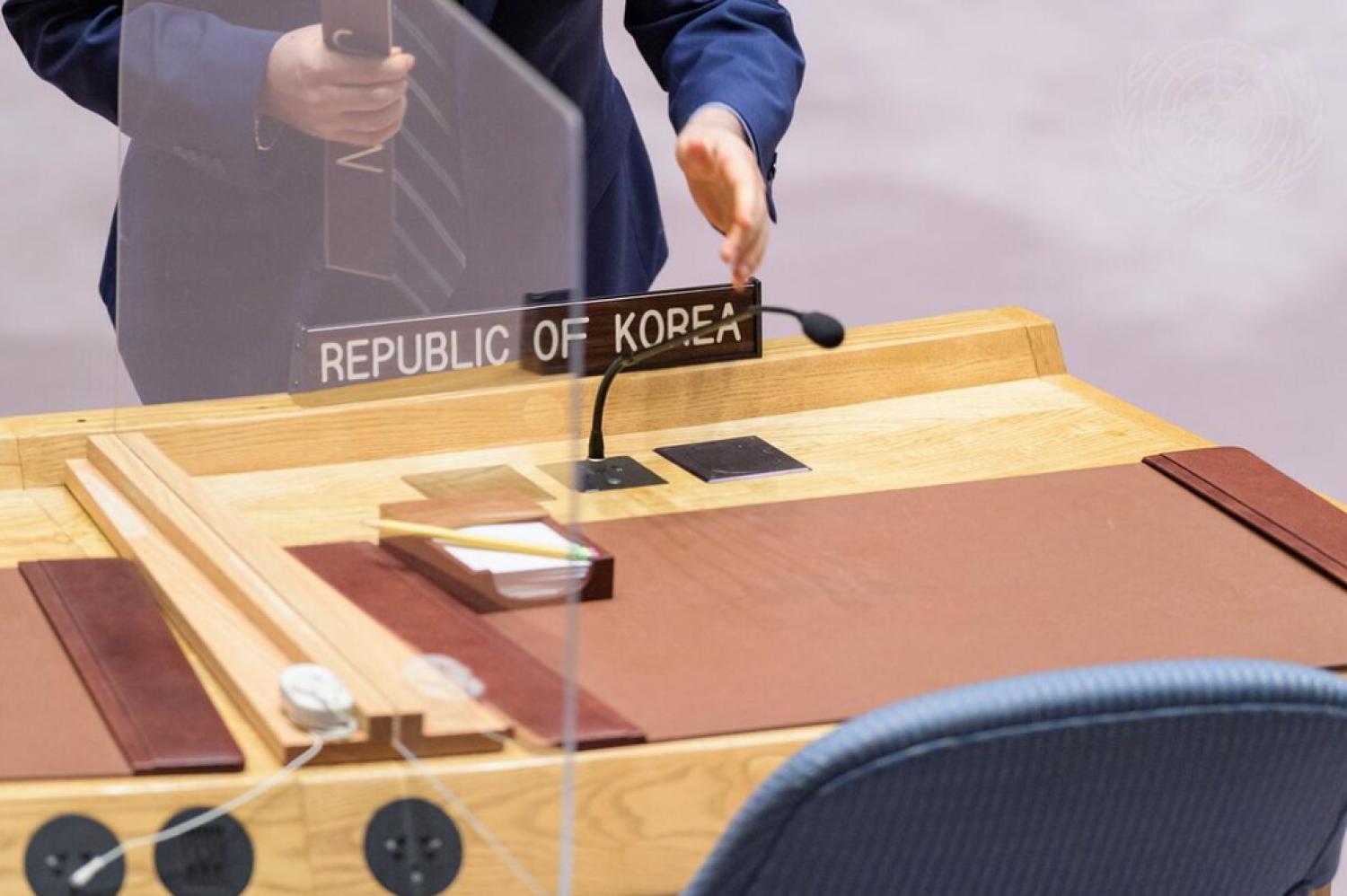“South Korea should no longer be confined to the Korean Peninsula but rise to the challenge of being what I have described as a ‘global pivotal state’, one that advances freedom, peace, and prosperity through liberal democratic values and substantial cooperation.”
This was the foreign policy vision put forth by then-presidential candidate Yoon Suk-yeol in February 2022. With South Korea now joining the UN Security Council (UNSC) as a non-permanent member for the 2024–25 term, President Yoon has the chance to bring this vision to life.
This marks the third time South Korea has joined the Council as a non-permanent member, having held the position in 1996–97 and 2013–14. During its most recent tenure, South Korea supported stronger sanctions against the North Korean government and backed resolutions condemning Pyongyang’s ballistic missile launches and nuclear tests, increased its contributions to UN peacekeeping missions, and promoted global non-proliferation initiatives such as the Arms Trade Treaty.
Although the North Korea issue remains South Korea’s top foreign policy challenge, the Yoon government aims to broaden the scope of its foreign policy focus. “For the next two years, we will play a responsible role in ensuring that the Security Council responds effectively to major issues that threaten international peace and security, such as the North Korea issue, the Ukraine crisis and the Israel–Palestine issue,” South Korea’s Foreign Ministry said on 1 January, adding that “South Korea will contribute to promoting the agenda related to UN peacekeeping and peacebuilding; women, peace and security; and emerging security threats, including cyber and climate security.”
South Korea will be joined by Algeria, Ecuador, Guyana, Japan, Malta, Mozambique, Sierra Leone, Slovenia and Switzerland during its 2024 term. Notably, this year also marks the first time since 1997 that South Korea and Japan simultaneously hold UNSC non-permanent membership. With Tokyo, Seoul and Washington all prioritising increased trilateral cooperation since Yoon took office, the three allies are expected to further ramp up their efforts in this area.

In addition, Seoul will likely use its new position to further the goals presented in the country’s National Security Strategy (NSS) published last June. According to the document, South Korea will “continue to strengthen our role in promoting international peace and security, human rights, and economic development” while also expanding peacekeeping operations and increasing Official Development Assistance (ODA) in accordance with its “status as a mature liberal democratic nation”.
The NSS further highlights the steps the Yoon government plans on taking to become a “Global Pivotal State Contributing to Freedom, Peace, and Prosperity”. The administration’s plans include: expanding humanitarian assistance globally; supporting food security efforts in vulnerable countries; strengthening global health capacity; supporting digital education and technology transfers for developing countries; contributing to a sustainable climate response; enhancing counter-terrorism cooperation with other countries; and expanding the scope of its public diplomacy.
While it is possible for Seoul to increase the amount of humanitarian aid it sends abroad, engage in global healthcare initiatives, and provide support for technological advancement in developing countries, South Korea’s own geopolitical challenges paired with the ever-growing limitations of the Security Council to function effectively pose serious roadblocks to the Yoon government’s foreign policy goals, particularly regarding placing additional pressure on North Korea.
The first roadblock, given South Korea’s location and complex security situation, is that it has for decades had to tread carefully and conduct a balanced diplomacy towards the United States and China. This challenge is amplified in the Security Council, where both Washington and Beijing hold veto power while having starkly different views on various key issues. Although the current Yoon government has chosen to prioritise the US–South Korea alliance over its ties with China, US support alone is not enough to push forward South Korean interests in the Council.
Second is the Russia problem. While Seoul and Moscow have mostly maintained stable relations since the end of the Cold War, this has now changed with the war in Ukraine and the resulting collapse of US–Russia relations. South Korea’s support for Ukraine and of US punitive measures against Russia have also served to worsen relations with Moscow.
With two of the five permanent UNSC members refusing to approve further sanctions against North Korea and the United States bogged down due to its ongoing rivalry with China, the war in Ukraine, and the conflict in the Middle East, South Korea’s security concerns are not likely to top the Security Council’s priority list, at least for now. In fact, both Beijing and Moscow have hinted they would not support further UNSC sanctions even if Pyongyang conducts a seventh nuclear test.
As such, instead of pushing for harsher sanctions against North Korea at the Security Council or focusing significant time and resources on enhancing deterrence through trilateral cooperation with Tokyo and Washington, a more effective way to enhance its global influence may be for Seoul to focus on its other foreign policy goals as laid out in its NSS.
As long as the five permanent members of the UNSC remain divided on North Korea, South Korea should seize this opportunity to broaden its foreign policy horizons, actively engaging with other non-permanent members to bolster global peace and security.

